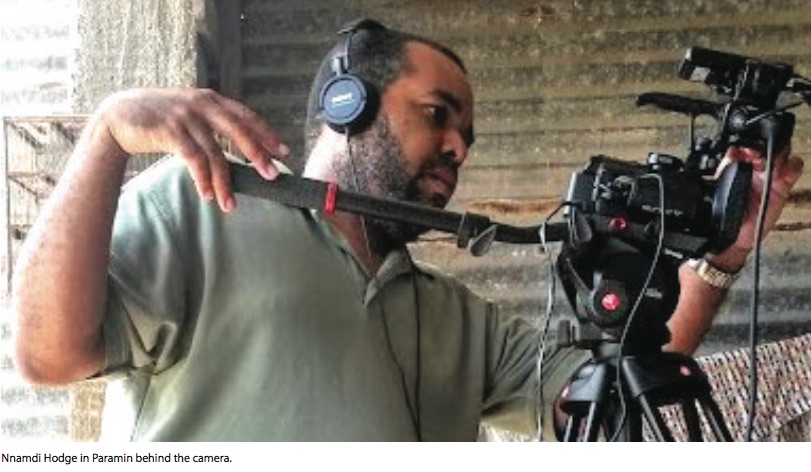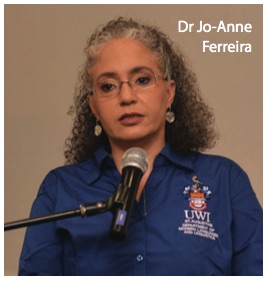
One day, the Patois language of Trinidad and Tobago could be gone forever.
Once prevalent throughout T&T, Patois (French Creole) is now spoken mainly by elders in rural areas who have not been able to pass it on. Linguist Nnamdi Hodge is dedicated to documenting Patois, working on projects with Dr Jo-Anne Ferreira, Senior Lecturer in Linguistics at the Department of Modern Languages and Linguistics (DMLL).
“It’s a mission to bring back the old Trinidad and push back this foreign influence we have,” he explains.
Hodge co-produced one of his latest projects Mayòk (Sweet Cassava), an 11-minute film which will be screened in this year’s Trinidad and Tobago Film Festival. It depicts director Cassandra Joseph’s grandmother from Paramin making cassava flour. Joseph conceptualised the film to chronicle the traditions of her Paramin relatives.
She first asked Hodge’s assistance in producing the film Sèptant Lanné Ansanm (70 Years Together) which shows her grandparents talking about their marriage in Patois. Hodge contributes his expertise in the language he learned at The UWI and now teaches all over the country. He has worked on Joseph’s Vwé Kafé (Real Coffee) and Boukanen (The Tradition of Smoking Meat), editing and subtitling the films as he did with Mayòk.
Hopefully, Mayòk will help kindle interest in Patois, just as the language captivated Hodge years ago when he started taking French and Spanish at UWI. His programme of study at the university required a linguistics course, and Hodge chose French-lexicon Creole. Gradually, the significance of the language clicked.
“My mother had a record at home which was called Patois People are Alive. The language used in songs was the exact language I learned in that course.”
He bonded with Patois speakers and immersed himself in the culture. He became invested in trying to preserve it.
Besides teaching for The UWI St Augustine Centre for Language Learning and DMLL, Hodge has travelled around T&T documenting Patois (and helping with Bhojpuri/Hindustani), and been invited to Grenada, Venezuela and Martinique. A grant from The UWI Research and Development Impact (RDI) Fund was instrumental in purchasing the necessary equipment. The RDI Fund project, “Trinidad and Tobago Endangered Languages”, was led by Dr Benjamin Braithwaite (Project lead) and Dr Ferreira (Project Co-Lead).

Hodge often works with students and Dr Ferreira. They want to ensure that, if there is a movement to revive Patois in the future, the resources will be available.
“Our goal right now is language documentation so that people can study, research and speak it,” explains Dr Ferreira.They have formed the group Tout Bagay Patwa, and produce videos featuring Patois speakers, stick-fighting, Camboulay and folk songs. They also help with the language input in Patois masses in church services, such as the one scheduled for October 9 in Talparo, and arrange live and virtual concerts, like the upcoming Sé Yon Bagay Patwa on October 23.
“We want to put Trinidad and Tobago on the map as a Patois-speaking country,” declares Hodge.
Dr Ferreira hopes they are planting seeds of language and cultural appreciation. “We have a really bad habit of saying Patois is broken French,” she says, denouncing the “negative view of Caribbean languages”.
“Elements of it are tied to our national identity,” she notes. According to Hodge, “Nou ni pou konnèt koté nou sòti pou konnèt koté nou ka alé.” - we have to know where we come from to know where we're going.
For more information, visit the Trinidad Patois Speakers Facebook page @trinidadianpatoisspeakers. To see Tout Bagay Patwa videos, search for them on YouTube.